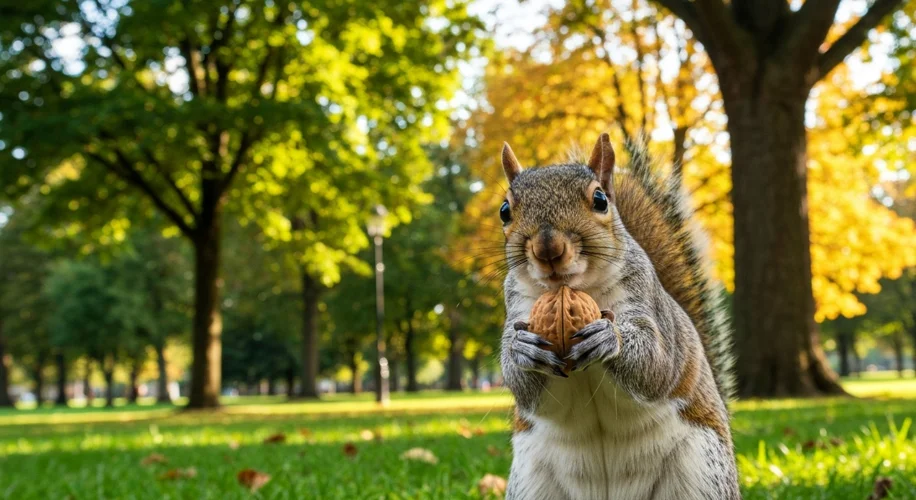On a walk through the park today, I watched a squirrel meticulously bury a nut, then pause, look around, and proceed to dig it up and rebury it a few feet away. It’s moments like these that make you wonder: just how smart are these common urban dwellers?
We often see squirrels as little more than furry acrobats, darting across power lines and raiding bird feeders. But a growing body of research is revealing that their cognitive abilities are far more sophisticated than we might give them credit for.
A Master of Memory and Planning
Squirrels, particularly the common grey squirrel (Sciurus carolinensis), are renowned for their caching behavior. They gather nuts and seeds, especially during autumn, and hide them away for later consumption. This isn’t just random stuffing; it’s a complex strategy.
Did you know that squirrels create ‘larders’ – multiple stashes of food distributed across their territory? They also employ a technique called ‘deceptive caching,’ where they pretend to bury a food item but actually keep it, or they bury items in numerous locations rather than one large cache. This strategy helps them avoid being raided by other squirrels or birds. Studies suggest they can remember the locations of thousands of these caches, even after months have passed and snow has covered the ground. This level of spatial memory is quite remarkable!
Problem Solvers in Our Midst
Beyond memory, squirrels exhibit impressive problem-solving skills. Researchers have observed them navigating complex artificial environments designed to test their intelligence. For instance, they can figure out how to open puzzle boxes containing food, often learning from trial and error. Some studies even suggest they can learn by watching other squirrels, a form of social learning.
In urban environments, this intelligence is crucial for survival. They learn to exploit human-made resources, like trash cans or bird feeders, often devising clever ways to bypass security measures. This adaptability is a testament to their cognitive flexibility.
What Can We Learn?
Studying animals like squirrels offers a fascinating glimpse into the diverse ways intelligence can manifest in the natural world. It challenges our anthropocentric views and reminds us that complex cognitive processes aren’t exclusive to larger-brained animals. These insights can contribute to our broader understanding of animal behavior and ecology, particularly within the ecosystems we share in our cities.
So, the next time you see a squirrel busily going about its day, take a moment to appreciate the intricate mind at work. They’re not just surviving; they’re strategizing, remembering, and problem-solving right under our noses.

